The latter half of the previous century was a triumphant march of democracy. The democratic development that strengthened in the Mediterranean in the 1970s was continued with the regime changes of 1989 in the former Communist Bloc nations.
Similar developments also took place outside Europe. The peaceful transition to democracy in the Philippines in 1986 served as an example of a new kind of a revolution without bloodshed. In Latin America, authoritarian regimes were put on the spot. Military governments, which had previously been in charge, took the back seats in many countries.
The end of apartheid was a sign that human rights thinking, an essential part of democracy, had taken root in the southern parts of Africa. Researchers in democracy emphasised the significance of civil activism and civic society as fundamental basic structures of democracy.
The democratic development was dramatic – in a positive way. The concept of “people-power revolution” became established in the vocabulary of politics. The concept referred to people using the power vested in them under the principles of democracy.
By the turn of the millennium, slightly under half of the global population were living in countries that could be considered democracies. However, the winds have changed since then. First, we entered a period of “democratic recession”, which Larry Diamond, a researcher in democracy, considers to have begun around 2006. As we entered the 2010s, the expansion and deepening of democracy became stagnant.
Experts on democracy and research institutes carrying out different international comparisons and relying on democracy indicators have not come to an agreement on what has happened since then. According to a survey commissioned by The Economist, the quality and scope of democracy are in decline. In the oldest democracies, particularly the United States, an important factor for this development is the increasing mistrust of people in their country’s political institutions and decision-makers.
During the current decade, increasingly small numbers of countries have made the transition to democracy or strengthened their democratic institutions and approaches. The alternatives to democracy seem appealing. Oligarchy fortified by a technocratic government apparatus appears to generate stability and predictability in the giant nation of China.
In Turkey and Russia, governments aim to assert their positions by stifling political opposition. As alternatives grow increasingly sparse, we are left with democracy in name only. While the powers that be might receive high approval ratings based on elections, the voters do not have a genuine opportunity to replace their leaders.
The inertia or stagnation of decision-making has frustrated elites and the public alike
The oldest and most stable democracies show symptoms of the same disease. For a long time, there have been worries of the gradual decay of the system both in Europe and the US. The inertia or stagnation of decision-making has frustrated elites and the public alike.
Although the culmination of differences of opinion is not such an unfamiliar phenomenon in democracy, the strong dichotomy in the political field and political attitudes of Americans has led to a loss of confidence in the entire system.
In Europe, we have been dealing with the opposite problem: the main established parties have become too similar, which has made elections seem trivial. Where government activities have been based on coalitions across party divides, the attempts to co-operate or establish consensus have taken on characteristics that suggest there is a lack of alternatives.
There is a desire for other forms of democracy alongside representative democracy: referendums, grassroots democracy and direct involvement preparing decisions.
The political playing field has made room for colourful and extraordinary candidates
Some lean towards authoritarian solutions. The political playing field has made room for colourful and extraordinary candidates.
Many people have come to perceive the 2010s as an era of worry or anxiety. Election polls indicate that significant causes of worry include economic uncertainty, terrorism and internal security, as well as problems related to immigration. However, the major political parties have either ignored these issues or provided insufficient solutions to them.
The establishment has also felt out of touch with the wider audience. Mutual trust is fading: the people no longer trust their representatives, who, in turn, fear the reactions of their supporters.
Party system in trouble
Among researchers, it is common to examine the factors promoting or impeding the realisation of democracy comprehensively. The success of democracy is not dependent on one or two factors.
What really matters is what is going on deeper within the system. In addition to formal institutions and the principles of the division of power enshrined in constitutions, a supportive political culture is required to make democracy work.
A political culture includes the practical ground rules for the system and provides details of the relationships between those involved in its systems. The culture may highly value co-operation or, similarly, be based on polarisation and the solutions that emerge from that.
In addition to the common ground rules, a political culture maintains the delivery mechanisms vital for democracy that enable interaction between political forces, people and civil society.
The difficulties of developed democracies, which some have described as a “crisis”, reflect the problems in these mechanisms – and ultimately in the political culture.
Throughout the developed democracies, the number of members of political parties has slumped during the last few decade
The party system, a delivery mechanism essential to representative democracy, is in great trouble in several countries. Throughout the developed democracies, the number of members of political parties has slumped during the last few decades. The position of parties as the ones to address societal demands and as ideological innovators has diminished.
What they are left with is their role in using governing power. As they have slipped further away from the people and civil society, the parties have become closer to the state and the old structures of authority. This development has not exactly been good for the credibility of the parties as havens for civil activity and genuine forces of change in society.
In any case, activities taking place in associations supported by formal organisations, annual memberships, membership fees and member democracy have already been struggling. These activities are being replaced by new forms of political involvement and activity, which often operate like networks. For now, they have failed to replace the political parties, which are vital for traditional representative democracy.
Nevertheless, the current turmoil within democracies is taking place within the party systems. New challengers, most notably populist movements, have emerged to rival the traditional parties. Some of the new parties, such as Podemos in Spain or the Five Star Movement in Italy, are challenging the established views of what kinds of organisations parties should be and how they should be managed – in some cases, it is doubtful that the new movements can even be described as parties at all.
New parties are mass produced in some countries. While these so-called pop-up parties, quickly launched, increase the choice available for voters, they at the same time increase the fragmentation of the party political field and make it harder to form governments. Such a phenomenon made it hard to predict the outcome of the recent Dutch parliamentary elections, for instance.
The problems of the delivery systems are not limited to the party system. The fragmentation of media has hampered the positive publicity for politics, which is important for democracy, as well as the comprehensiveness and sustainability of discourse.
The increasing prevalence of social media as a news outlet and the replacement of large and wide-reaching media platforms with a series of smaller ones, including the so-called fake media and their networks, is considered worrisome. Nevertheless, the new forms of media and large technological platforms provide significant opportunities for the renewal of the old democracy of the masses that goes back to the 20th century. They can undoubtedly be used to create new forms of political publicity and communications. Donald Trump’s triumphant presidential campaign of 2016 is a prime example of this.
Threats related to immigration, terrorism and the unfair distribution of the fruit of economic growth are likely to feed cultural fears
What is a problem, however, is that the transformation of the media is taking place at the same time as many other changes in society and political culture. Threats related to immigration, terrorism and the unfair distribution of the fruit of economic growth are likely to feed cultural fears, for which the strongly fragmented mediasphere provides an effective platform.
In fact, the technological and economic transformation of communications has thus far been more likely to destroy the prevalent structures instead of mending them. It has succeeded in shaking the basic pillars of the old system, at times even demolishing them.
Democracies hollowed out from within
When we talk about the difficulties of democracy, are we dealing with a crisis targeting the justifications for its existence? David Runciman, a British democracy researcher, has studied the vulnerability of democracies to crisis. The basis of democracy as a system is unstable, including an inherent tendency to run into difficulties. Runciman argues that this is due to the “confidence trap” of democracies.
According to Runciman, democratic decision-making involves a tendency to postpone tough decisions. Before long, this pushes democracies into a crisis they will attempt to cope with by making the minimum amount of changes required.
The elites in particular fear that any given crisis will be a fatal one. When it is not, this in turn feeds overwhelming confidence in the superiority of democracy. At the same time, we lose interest in making difficult choices.
The prevalent assumption is optimistic about the system’s fundamental resilience in times of crisis. Past experiences feed an idea of a democracy developing and becoming empowered as a result of the crises it faces. At times of crisis, making decisions on tough issues is also easier and faster. Democracy has been condemned to a cycle where the system goes from one extreme to the other, from the throws of despair to unfounded self-complacency.
Past successes are no guarantee of future profits
Runciman founds his estimate on the long-term history of democracy. However, we are faced with a problem that could be summed up by the warnings typically offered by investment fund brochures: past successes are no guarantee of future profits.
No one knows whether the current difficulties faced by democracy will be insurmountable. The current problems of democracies are a combination of long-term trends and short-term shocks and uncertainties. In line with a famous quote from economic history, this time may be different.
As early as the 1990s, the late political researcher Peter Mair drew attention to how the problems expressly related to representative democracy were getting gradually worse. It was as if the developed Western democracies were becoming hollowed out from within. They were turning into empty shells where people lost touch with the systems and decision-making became increasingly distant and technical.
Mair warned that criticism of authorities and legislators – who are subjected to the kind of unwavering surveillance by the public that is intrinsic to representative democracy – was about to turn into outright cynicism and mistrust. The parties were drifting apart. Instead of leafy green forests, democracies started to be seen as dead trees that, while sometimes attractive from afar, break up or fall down as soon as a storm comes.
The majority still want to live in democracies
To take a positive perspective, there are currently attempts to correct things to make that “forest of democracy” reinvigorate itself, spurred on by the economic crisis that begun in 2008, the increasing mobility of people and the digitisation of communications.
The rise of populism is a visible sign of change. The populists share a demand for reforms that penetrate the foundations of the system, giving power back to the people. Gradual changes, such as those related to income distribution, will not do; instead, there are calls for a more significant change of direction. Some populists also demand restrictions on immigration and the abolition of goals related to multiculturalism.
Jan-Werner Müller, a political researcher based in Germany, sees populism as part of the internal development of democracies. It will become a problem if populism or the presumed common will of the population is used as an excuse to reduce diversity in society and politics. The plenitude of alternatives available to the public is vital to democracy. Once we start removing alternatives, we are no longer dealing with populism, but are on our way towards authoritarianism instead.
The populism of Donald Trump is not a threat against democracy because he incites mistrust and polarisation between a presumed public and a corrupted elite. However, his attacks against the media aim to narrow down the political publicity presented to the public. By doubting the credibility of the media, Trump aims to change the political culture of the United States and diminish the opportunities of his political opponents to challenge him in the coming elections. This is authoritarianism.
To perceive all kinds of populism as a threat to democracy would be unfounded
Nevertheless, to perceive all kinds of populism as a threat to democracy would be an oversimplified and unfounded generalisation akin to that populists are criticised for employing. What matters most is what occurs once populists come to power.
People’s dissatisfaction with democracy may not be with its basic pillars but instead with the faults that have appeared in the system as time has passed. Recent surveys suggest that a clear majority of the global population would still like to live in democratic countries. The perceptions of democracy have not changed as dramatically as the election of Donald Trump as the President of the US, the referendum on the UK’s EU membership or the latest developments in, say, Hungary or Poland would have you believe.
The size of the middle classes, sections of the population that traditionally have a positive view of democracy, is constantly growing among the global population. Levels of education, which strongly correlate with political activity, have increased and gender equality has also been enhanced.
Representative democracy, which became established during the previous century, will either regenerate or make way for new forms of involvement and influence enabled by new technology. Another child of the same century, the traditional mass media controlled by major media corporations, is also being replaced by new means of communication and ways of knowing what is going on in the world.
The Italian author Primo Levi, a Holocaust survivor, once said that every age has its own fascism. He might have been right, for the most part. After all, every age also has its own version of democracy.
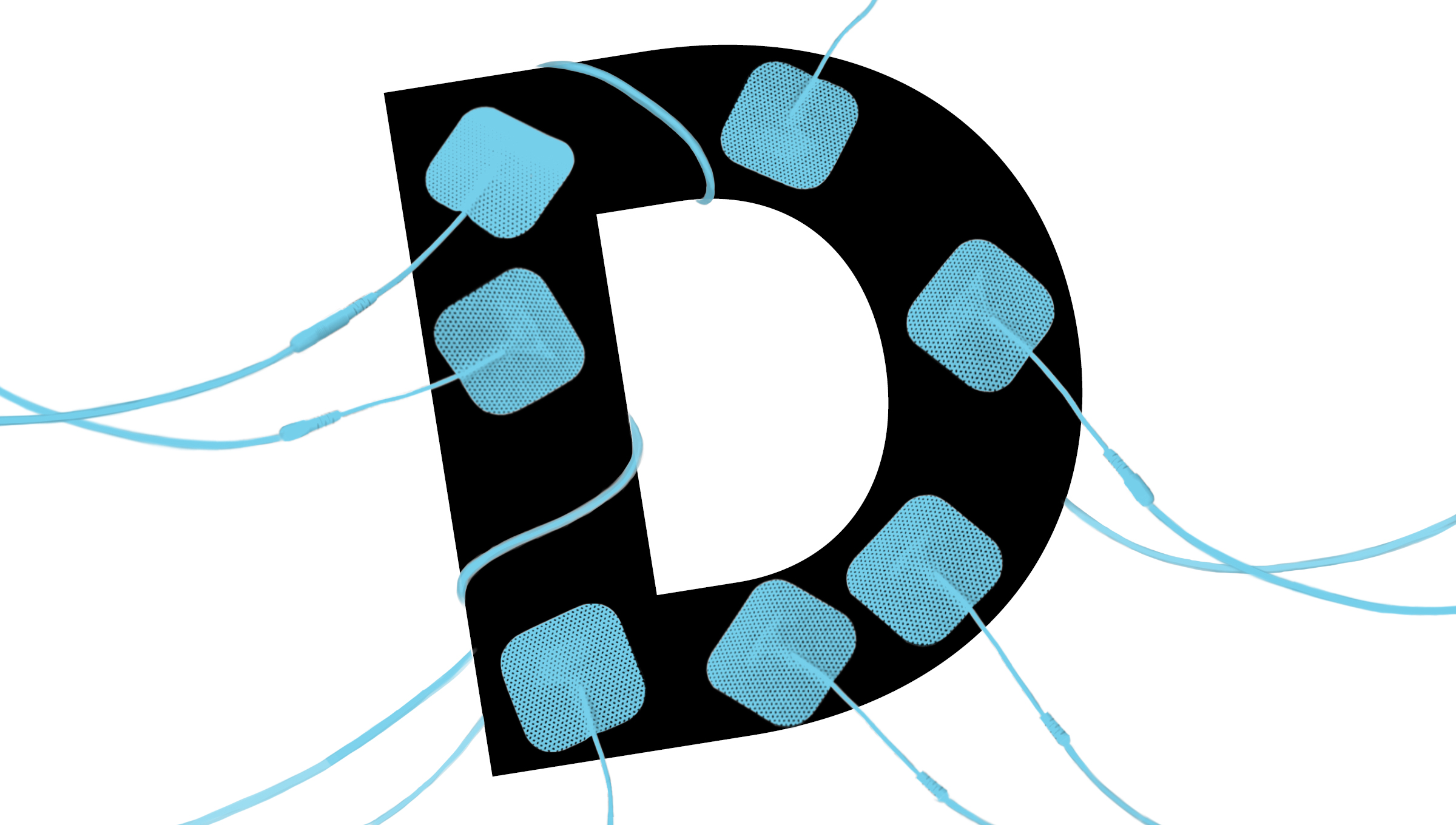

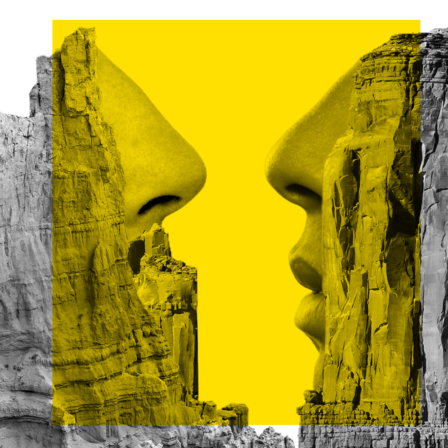
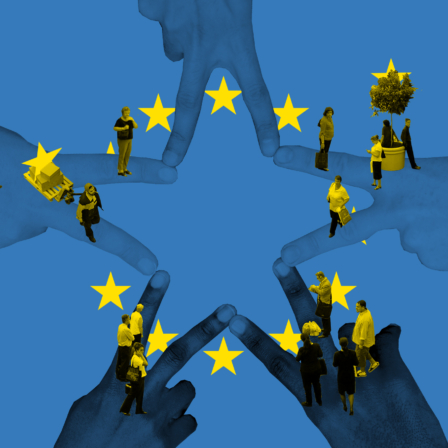




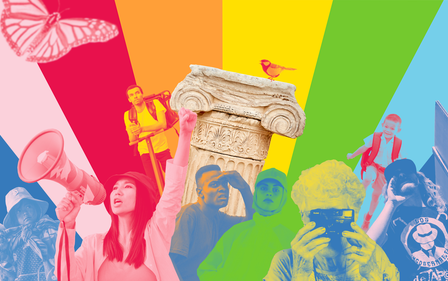

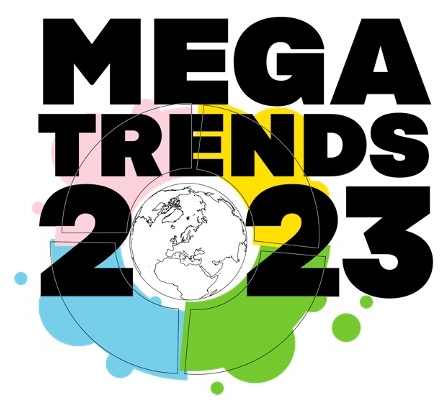
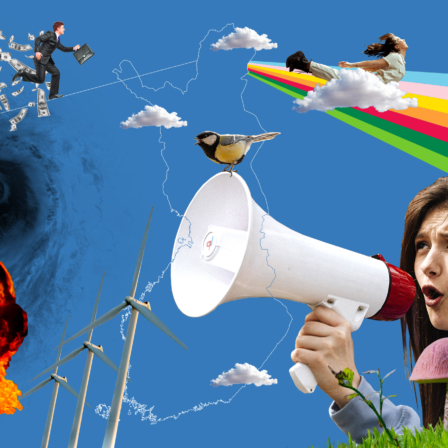




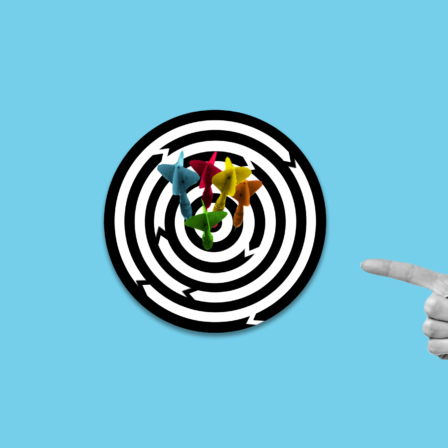

Other articles
Share these too